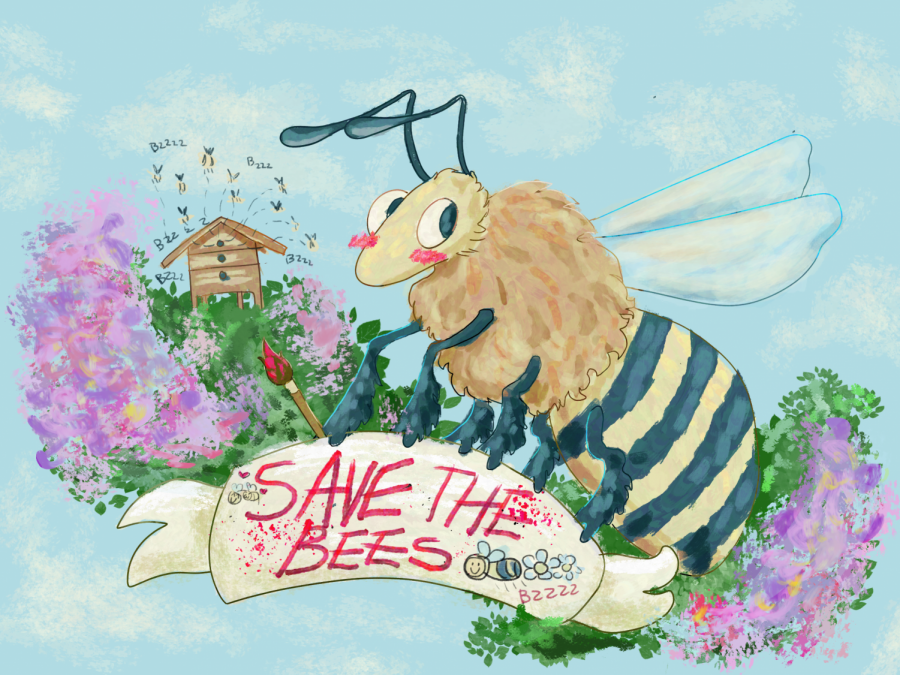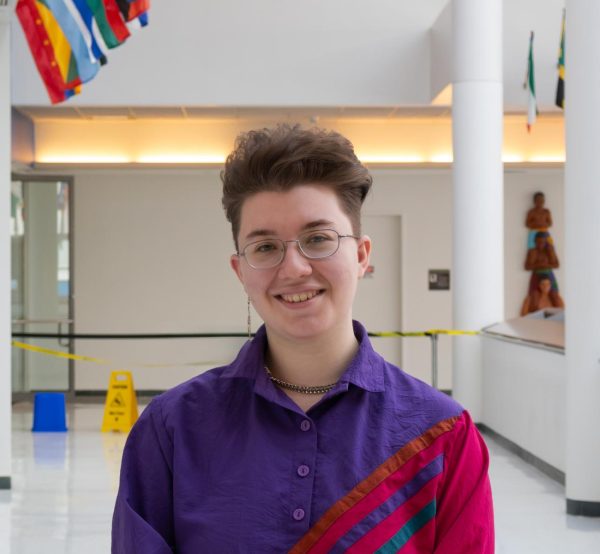Everyone can help save the bees
October 22, 2021
Bees, which are responsible for pollinating over one-third of the food supply, are at the risk of disappearing because of parasites. Due to their vital role in humans’ lives, they need to be protected and preserved.
Monoculture farming, a modern-day farming technique that cultivates a single crop in an area, was revealed to be the cause of the risk.
A study by the Proceedings of the Royal Society B found that “the mass-flowering of single plant species is increasing the prevalence of bee populations infected with parasites.”
Although the mass flowering of a single crop could give nutritional benefits to bees, the massive amounts of pollen provided in one given area are also known to attract more disease-causing parasites.
“It’s just the same thing as a human touching a doorknob,” Hamutahl Cohen, a researcher at the University of Oregon’s Institute of Ecology and Evolution, said in an interview with ABC News. “We all know this, because of the pandemic…if you have a cold and you touch a doorknob, and someone else comes and touches that doorknob, they can get sick.”
To protect the bees, Scarlett Harper, an 11-year-old Illinois resident, has launched a campaign, by introducing the “Bee Bill” or Illinois HB 3118 with Rep. Robyn Gabel.
The Bee Bill can be the first step toward change, saving not just bees but also the country’s agriculture sector that acquires billions of dollars from bees that pollinate food crops.
Under the law, mosquito control pesticides that are potentially lethal to bees will be restricted. Although pesticide companies and landscapers set themselves against the newly constructed bill, Harper believes that she will succeed in fighting against opposing factions.
“Instead of thinking of my age as a disadvantage, I try to use it as a tool,” Harper said to CBS News.
Harper and many other people are working hard to help bees, however, everyone should be involved in the fight to save bees.
In order to help bees that are tired from their journey to find nectar or pollen, people can consider installing watering stations that are located near pollinators or planting a pollinator garden.
Looking for volunteer opportunities at bee conservancy organizations, finding a mentor who is a beekeeper and donating to a bee conservancy organization are other ways anyone can contribute to the cause.








